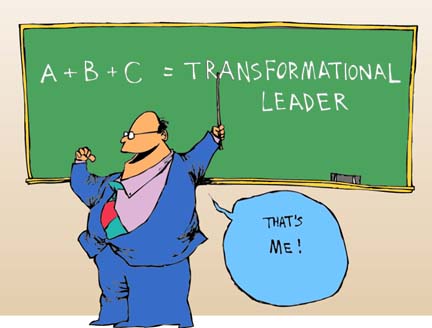

A forum for Hawaii's
business community to discuss
current events and issues
CREATING EXCELLENCE
Leadership qualities
Executives who make a difference
show genuine concern for subordinates
The largest and most diverse investigation of public- and private-sector organizations ever conducted in the United Kingdom ("Stamp of Greatness," by Beverly Alimo-Metcalfe and John Alban-Metcalfe; June 26, 2003, Health Services Journal) produced the most un-startling revelation. "Showing a genuine concern for people" was found to be the "single most important indicator of transformational leadership," predicting fully "60 percent of a person's final overall leadership score."
Why un-startling? Do we really need exhaustive, extensive, repeated and expensive research studies to prove a point common sense has taught us for ages? What goes around comes around. Organizations that treat their people well are rewarded for their efforts by employees who work hard and remain loyal to warrant the return on investment. Reciprocity is one of most fundamental human natures, positive or negative.
The second thing we must note very carefully is that we are not talking about just "being nice." There are, in my experience, whole ranges of behaviors that I can exhibit that will result in a person concluding that I am concerned about them. These include behaviors that we would normally see as fitting into a category we might call being empathic; but these are not the only behaviors we experience as reflective of a concern for us. A small sampling of the many others my own leadership research has uncovered in the past three decades would include paying careful attention when a person is speaking, caring enough to be honest and direct about my praise and constructive criticisms, and being humble enough to admit and apologize for my own mistakes.
In other words, concern means different things to different people under different circumstances.
The second key word is genuine. This element of transformational leadership demands that we be self-aware. And self-awareness, as yet another massive body of research tells us, is the key to emotional intelligence -- EQ in contrast to IQ -- which distinguishes average leaders from the best.
Being genuine asks much of us. What we say has to be honest, has to come from the heart. Scheming by figuring out what you can say to make a person think you are concerned, when you really don't care, is being manipulative. Most people see through such shams quickly, even though they seldom let you know they do. And if you really believe you can con your employees in this manner, you ought to be worried. For who wants to puts the success of their organization in the hands of people who are so easily fooled?
So, theoretically, becoming more of a transformational leader is as simple as ABC, as increasing your awareness of your behavior and its consequences.
>> Awareness. Ask a person to tell you what specific behaviors they need to experience from you for them to conclude you are genuinely concerned about them.Easy to say. Hard to do. But that's why there are so few really transformational leaders -- because enacting this simple dynamic cycle is, first and foremost, an act of self-transformation.>> Behavior. Make a genuine effort to regularly exhibit those behaviors, and if need be, get a coach to help you learn how to do so.
>> Consequences. Monitor the consequences of your behavior by periodically asking for feedback on how well you are doing, and, based on this added awareness, adjust your behavior accordingly to effect a more positive consequence.
Irwin Rubin is a Honolulu-based author and president of Temenos Inc., which specializes in executive leadership development and behavioral coaching, training in building communication skills, and large-system culture change. His column appears twice a month in the Honolulu Star-Bulletin. Send questions and column suggestions to temenos@lava.net, or visit temenosinc.com.
To participate in the Think Inc. discussion, e-mail your comments to business@starbulletin.com; fax them to 529-4750; or mail them to Think Inc., Honolulu Star-Bulletin, 7 Waterfront Plaza, Suite 210, 500 Ala Moana, Honolulu, Hawaii 96813. Anonymous submissions will be discarded.
